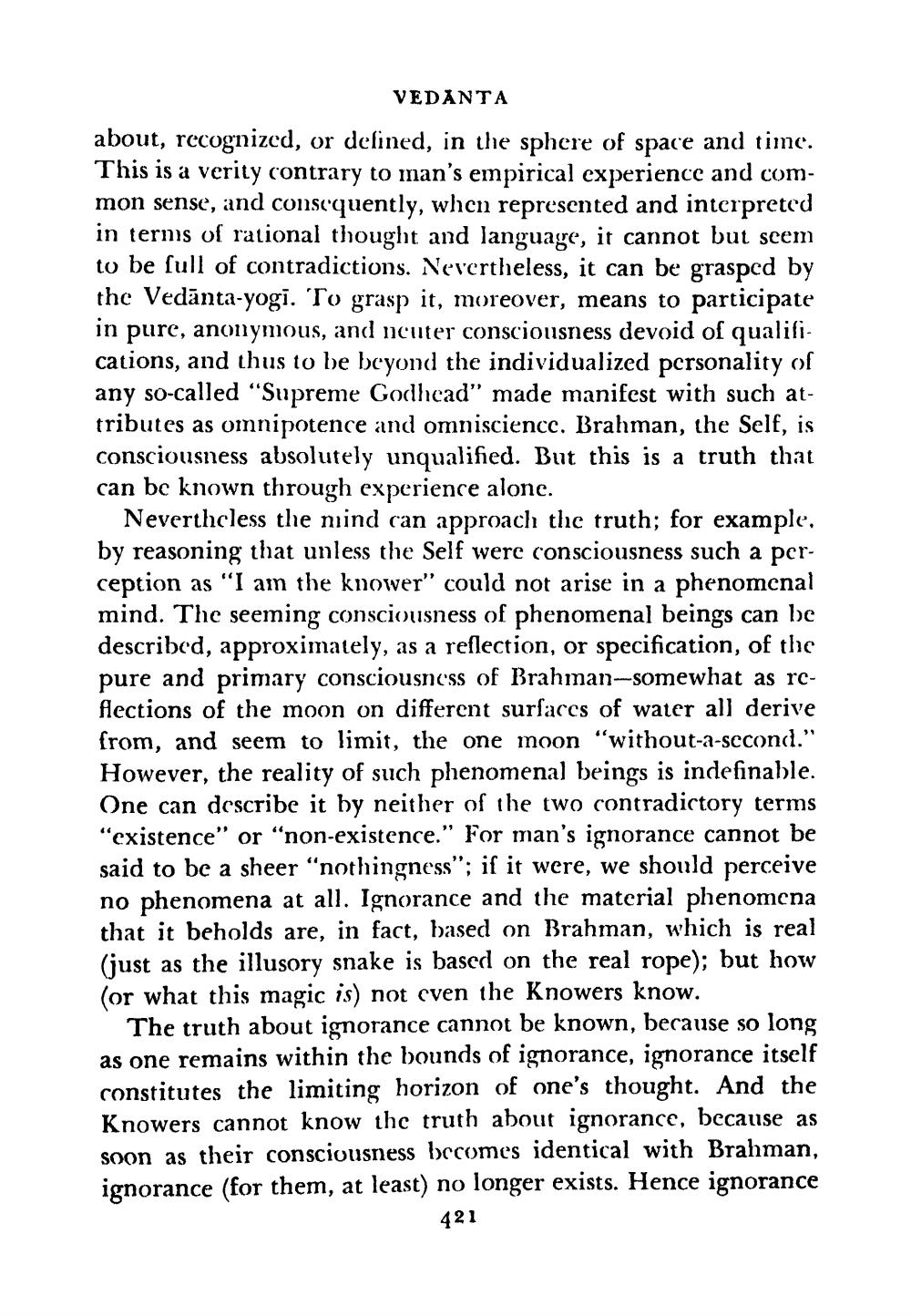________________
VEDANTA
about, recognized, or defined, in the sphere of space and time. This is a verity contrary to man's empirical experience and common sense, and consequently, when represented and interpreted in terms of rational thought and language, it cannot but scem to be full of contradictions. Nevertheless, it can be grasped by the Vedānta-yogi. To grasp it, moreover, means to participate in pure, anonymous, and neuter consciousness devoid of qualifi. cations, and thus to be beyond the individualized personality of any so-called "Supreme Godhead" made manifest with such attributes as omnipotence and omniscience. Brahman, the Self, is consciousness absolutely unqualified. But this is a truth that can be known through experience alone.
Nevertheless the niind can approach the truth; for example, by reasoning that unless the Self were consciousness such a perception as "I am the knower" could not arise in a phenomenal mind. The seeming consciousness of phenomenal beings can be described, approximately, as a reflection, or specification, of the pure and primary consciousness of Brahman-somewhat as rcflections of the moon on different surfaces of water all derive from, and seem to limit, the one moon "without-a-sccond." However, the reality of such phenomenal beings is indefinable. One can describe it by neither of the two contradictory terms "existence" or "non-existence." For man's ignorance cannot be said to be a sheer "nothingness"; if it were, we should perceive no phenomena at all. Ignorance and the material phenomena that it beholds are, in fact, based on Brahman, which is real (just as the illusory snake is based on the real rope); but how (or what this magic is) not even the Knowers know.
The truth about ignorance cannot be known, because so long as one remains within the bounds of ignorance, ignorance itself constitutes the limiting horizon of one's thought. And the Knowers cannot know the truth about ignorance, because as soon as their consciousness becomes identical with Brahman, ignorance (for them, at least) no longer exists. Hence ignorance
421




